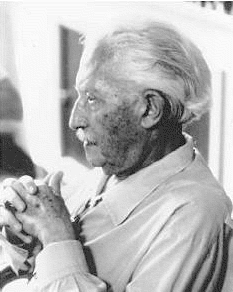Top 53 Quotes & Sayings by Erik Erikson
Explore popular quotes and sayings by an American psychologist Erik Erikson.
Last updated on April 19, 2025.
You see a child play, and it is so close to seeing an artist paint, for in play a child says things without uttering a word. You can see how he solves his problems. You can also see what's wrong. Young children, especially, have enormous creativity, and whatever's in them rises to the surface in free play.
In the evaluation of the dominant moods of any historical period it is important to hold fast to the fact that there are always islands of self-sufficient order — on farms and in castles, in homes, studies, and cloisters — where sensible people manage to live relatively lusty and decent lives: as moral as they must be, as free as they may be, and as masterly as they can be. If we only knew it, this elusive arrangement is happiness.
Children cannot be fooled by empty praise and condescending encouragement. They may have to accept artificial bolstering of their self-esteem in lieu of something better, but what I call their accruing ego identity gains real strength only from wholehearted and consistent recognition of real accomplishment, that is, achievement that has meaning in their culture.
The strengths a young person finds in adults at this time-their willingness to let him experiment, their eagerness to confirm him at his best, their consistency in correcting his excesses, and the guidance they give him-will codetermine whether or not he eventually makes order out of necessary inner confusion and applies himself to the correction of disordered conditions. He needs freedom to choose, but not so much freedom that he cannot, in fact, make a choice.
It's a long haul bringing up our children to be good; you have to keep doing that — bring them up — and that means bringing things up with them: Asking, telling, sounding them out, sounding off yourself — finding, through experience, your own words, your own way of putting them together. You have to learn where you stand, and make sure your kids learn [where you stand], understand why, and soon, you hope, they'll be standing there beside you, with you.
Someday, maybe, there will exist a well-informed, well considered and yet fervent public conviction that the most deadly of all possible sins is the mutilation of a child’s spirit; for such mutilation undercuts the life principle of trust, without which every human act, may it feel ever so good and seem ever so right is prone to perversion by destructive forms of conscientiousness.
Hope is both the earliest and the most indispensable virtue inherent in the state of being alive. Others have called this deepest quality confidence, and I have referred to trust as the earliest positive psychosocial attitude, but if life is to be sustained hope must remain, even where confidence is wounded, trust impaired.
These same experiences make of the sequence of life cycles a generational cycle, irrevocably binding each generation to those that gave it life and to those for whose life it is responsible. Thus, reconciling lifelong generativity and stagnation involves the elder in a review of his or her own years of active responsibility for nurturing the next generations, and also in an integration of earlier-life experiences of caring and of self-concern in relation to previous generations.






















